Composting is a natural process that turns organic waste into a nutrient-rich soil amendment. It is a great way to reduce waste, save money, and create a healthier garden. However, for beginners, composting can seem overwhelming and complicated.
With so many different methods and techniques, it can be difficult to know where to start. That’s why we created this beginner’s guide to organic composting tips. Whether you’re a seasoned gardener or just starting out, we will provide you with the knowledge and tools you need to create a successful compost pile.
We will cover the basics of organic composting, including what materials to use. And how to create the perfect compost mix, and how to maintain your compost pile. We’ll also provide tips on troubleshooting common problems, such as bad odors and pests.
With our guidance, you’ll be on your way to producing nutrient-rich compost that will help your plants thrive. So, grab a pitchfork and get ready to start compost
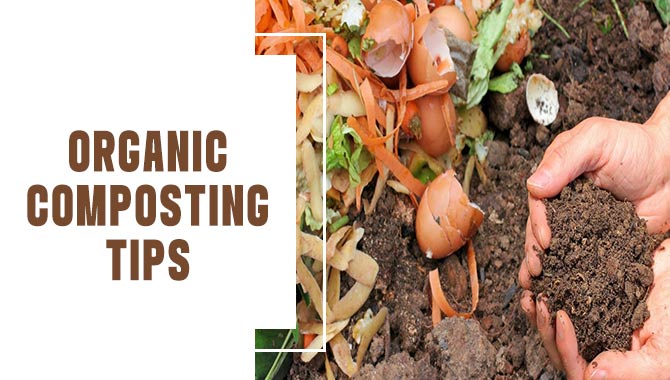
Understanding The Fundamentals Of Composting
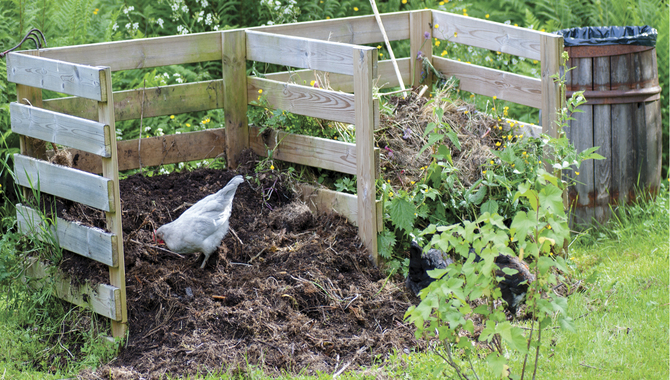
Composting is the process of breaking down organic matter into a nutrient-rich soil amendment that can be used in gardening and agriculture. Understanding the fundamentals of composting is essential for anyone interested in starting their own compost pile.
The basic principles of composting involve creating the right balance of carbon-rich “browns” (such as dried leaves, straw, or sawdust) and nitrogen-rich “greens” (such as grass clippings, food waste, or manure) in order to create an environment that encourages the growth of beneficial microorganisms.
These microorganisms break down the organic matter into humus. The nutrient-rich substance that can be used to improve soil fertility and plant growth. In this beginner’s guide, we will explore the key components of a successful compost pile. As well as tips and tricks for maintaining and troubleshooting your compost bin.
Choosing The Right Compost Bin
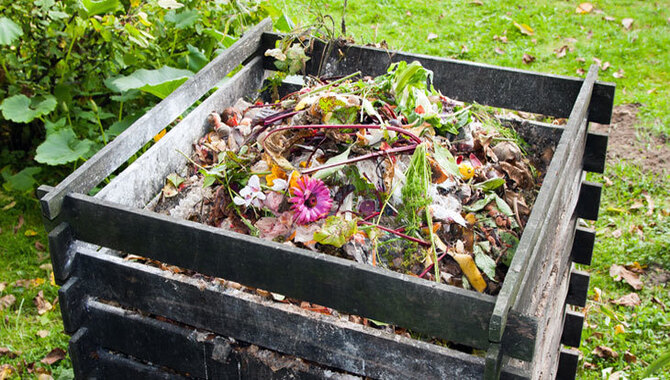
When it comes to organic composting, choosing the right compost bin is crucial to the success of your composting process. There are a variety of compost bins available on the market, and choosing the right one can be overwhelming for beginners.
Consider the size of your garden and the amount of organic waste you produce when selecting a compost bin. If you have a small garden and produce limited amounts of organic waste, a smaller compost bin would be suitable.
For larger gardens with higher amounts of organic waste, a larger compost bin would be more appropriate. Additionally, consider the type of compost bin that would work best for your needs.
There are stationary bins, tumbler bins, and worm bins, each with its own advantages and disadvantages. By selecting the right compost bin, you can ensure a successful composting process and enjoy the benefits of organic gardening.
Choosing The Right Materials For Organic Composting
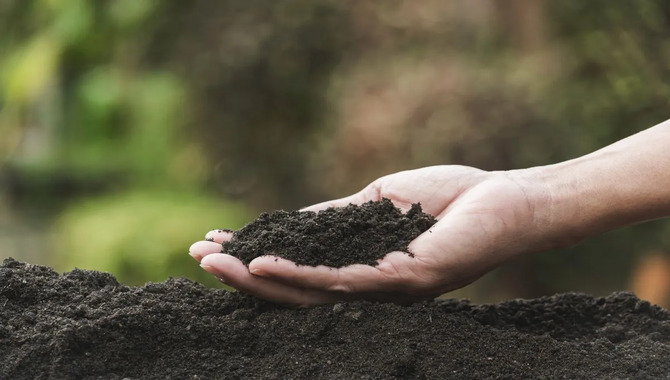
When it comes to organic composting, choosing the right materials is crucial. It is important to select materials that are rich in nitrogen and carbon to ensure a healthy and balanced compost pile. Some excellent nitrogen-rich materials include grass clippings, vegetable scraps, and coffee grounds.
On the other hand, carbon-rich materials include dry leaves, sawdust, and shredded newspaper. It is important to remember that not all materials are suitable for composting. For example, meat and dairy products should be avoided as they can attract unwanted pests and slow down the composting process. Similarly, plants treated with pesticides or herbicides should also be avoided.
As they can harm the beneficial microorganisms that break down the organic matter. Ultimately, the success of organic composting depends on the careful selection of materials. By choosing the right materials, you can create a nutrient-rich soil amendment that will benefit your garden or crops.
Adding Moisture To The Mix
Adding moisture to your compost pile is a crucial step in the composting process. Organic materials need moisture in order to break down properly, so it’s important to keep your compost pile moist but not waterlogged.
A good rule of thumb is to aim for a moisture level of around 50-60%. If your compost pile is too dry, it will slow down the decomposition process. While too much moisture can lead to a smelly, slimy mess.
To maintain the right level of moisture, consider using a hose or watering can to add water to your compost pile regularly. Additionally, covering your compost pile with a tarp or lid can help retain moisture and protect it from excessive rain. By adding moisture to the mix, you can ensure that your organic composting efforts are effective and efficient.
Turning The Compost Regularly
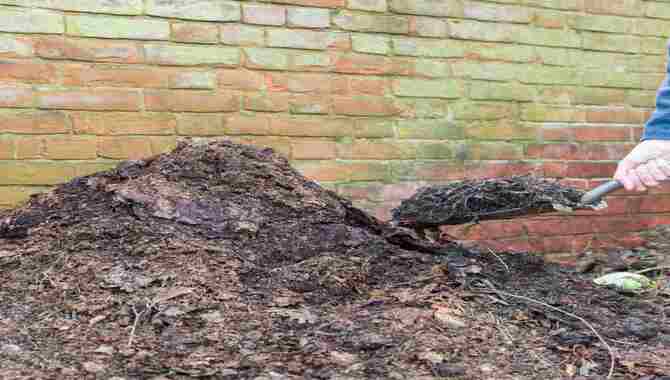
Turning the compost regularly is one of the most important steps in creating nutrient-rich organic compost. Regularly turning compost helps to aerate the mixture and provide the necessary oxygen for beneficial microorganisms to thrive.
This process also helps to distribute moisture and heat evenly throughout the pile. Which is essential for breaking down organic matter. Without turning the compost regularly, the decomposition process can slow down and produce a foul odor.
They recommend turning the compost every one to two weeks. Mix all the material thoroughly by using a pitchfork or compost aerator. By maintaining a regular turning schedule, you can create high-quality compost that will nourish your plants and support a healthy, sustainable garden.
Harvesting And Using The Compost
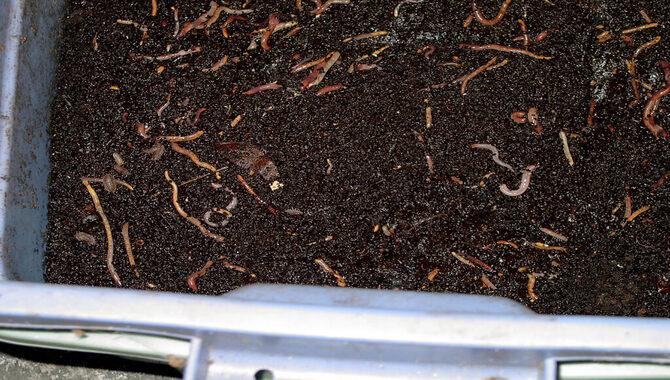
Harvesting and using the compost is a crucial step in the organic composting process. It takes patience and diligence to achieve the desired results, but the rewards are worth it.
When your compost has turned into a dark, crumbly, nutrient-rich material, you can harvest it and use it to improve the fertility of your soil. To harvest the compost, use a pitchfork or a shovel to remove the material from the bottom of the pile. This is where the most decomposed material will be found.
Use a screen or sifter to separate any large pieces that have not fully decomposed. This will create a fine, uniform material that is easy to spread. Once the compost has been harvested, it can be used as a soil amendment or added to potting soil to provide nutrients to your plants.
It’s important to note that the compost should be fully matured before use to avoid any potential issues. With burning plant roots or introducing pathogens to your garden.
Maintaining Your Compost System
Maintaining your compost system is crucial to ensure that your organic waste breaks down properly and efficiently. One of the most important things to consider when it comes to maintaining your compost system is the balance of moisture and air.
Your compost pile should be moist but not waterlogged, as too much moisture can lead to anaerobic conditions that slow down the decomposition process. On the other hand, a lack of moisture can also slow down the process and lead to a dry and ineffective compost pile.
Additionally, turning your compost pile regularly can help aerate it and distribute the materials evenly, allowing for better decomposition. By maintaining your compost system, you can create a nutrient-rich soil amendment that will benefit your garden and the environment.
Avoiding Common Composting Mistakes
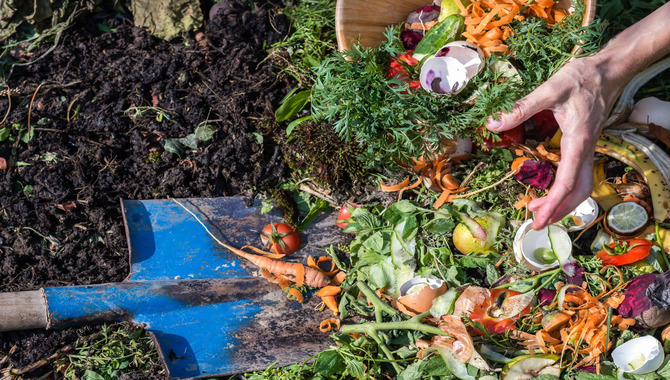
Composting is a great way to turn organic waste into nutrient-rich soil for your plants. However, it can be easy to make mistakes that can slow down the composting process or even ruin your compost altogether. To ensure that your composting efforts are successful, it’s important to avoid common composting mistakes.
One common mistake is adding too much of one type of material. Such as too many food scraps or too much brown material. This can throw off the balance of carbon and nitrogen in your compost pile. Which can lead to slow decomposition and unpleasant smells.
Another mistake is not turning your compost pile frequently enough, which can lead to uneven decomposition and pockets of dry or wet material. By following these and other tips for avoiding common composting mistakes, you can create nutrient-rich compost that will help your plants thrive.
What Are The Advanced Organic Composting Tips For Beginners?
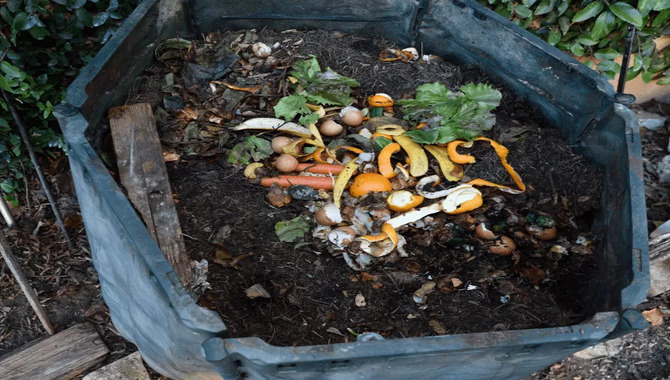
When we are a beginner in the world of organic composting, it’s important to know that there are some advanced techniques to take your Organic composting tips game to the next level.
One tip is to invest in a compost thermometer, which allows you to monitor the temperature of your compost and determine when it’s ready to use. Another tip is to use a variety of organic materials in your compost, such as shredded newspaper, coffee grounds, and eggshells.
This will create a balanced mix of carbon and nitrogen, which are essential for healthy compost. To prevent odors and pests, consider using a compost tumbler or aerator to keep the compost well-aerated and properly mixed.
Additionally, make sure to keep your compost moist, but not too wet, to ensure optimal decomposition. Finally, be patient! Composting is a slow process that requires time and attention, but the end result is well worth it.
Conclusion
Organic composting tips are a simple, cost-effective, and environmentally friendly way to manage household waste, reduce landfill waste, and produce nutrient-rich soil for gardening.
With these tips, beginners can easily start composting, reduce their waste, and improve the health of their plants. Remember to choose the right location, add the right ingredients, and monitor the process regularly for the best results.
As you continue to compost, you may find yourself experimenting with different materials and techniques to create the perfect balance for your specific needs. By following these organic composting tips, you can create a more sustainable and healthy garden for years to come.
FAQs
[rank_math_rich_snippet id=”s-a87e5b35-6f79-4c88-aa14-530b134eda0e”]

I am passionate about home engineering. I specialize in designing, installing, and maintaining heating, ventilation, and air conditioning systems. My goal is to help people stay comfortable in their homes all year long.
